Dental Services
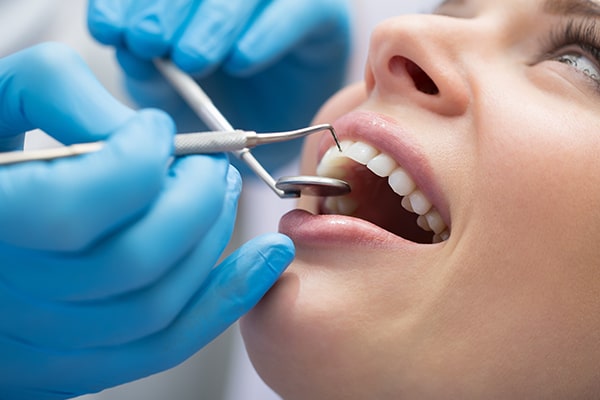
Dental Examinations
At your first appointment we’ll carry out a comprehensive oral examination. This includes:
- A thorough review of your medical and dental history
- Screening for oral cancers
- A periodontal health evaluation (your gums)
- An examination of your teeth and soft tissues
- Radiographs (where clinically necessary)
- Assessing for TMJ problems
- Checking the occlusion (how the teeth meet when biting)
Your first dental examination gives us a thorough overview of your oral health and we’ll discuss what this means with you and explain all your options for future treatment.
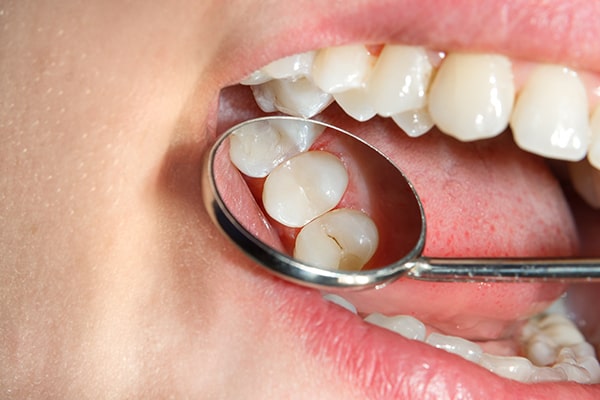
Fillings
(Silver Fillings) Dental amalgam is a dental filling material used to fill cavities caused by tooth decay, it’s a silver material that has been used for more than 150 years in hundreds of millions of patients around the world.
(White Fillings) White composite resin is a little more expensive than silver amalgam but the benefit of retaining the appearance of your natural teeth is well worth it. We only use high-quality composites known for their exceptional durability that look exactly like your natural teeth
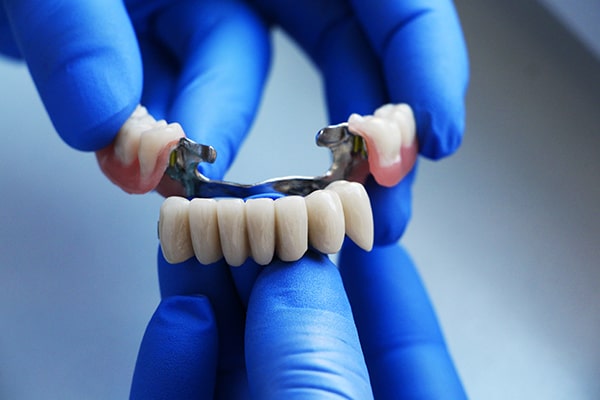
Bridges
Dental bridges literally bridge the gap created by one or more missing teeth. A bridge is made up of two or more crowns for the teeth on either side of the gap and a false tooth in between. Bridges can be supported by natural teeth or dental implants.
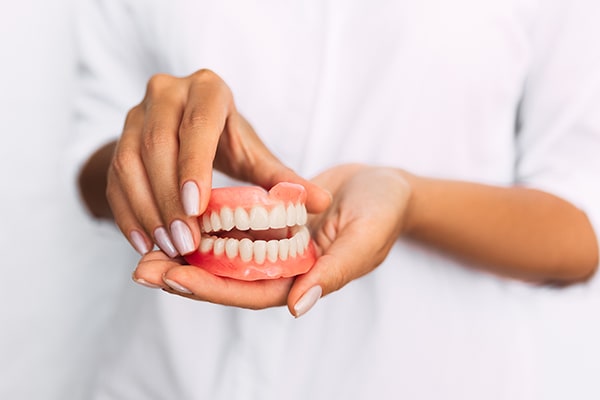
Dentures
A denture is a removable replacement for missing teeth and adjacent tissues. Complete or full dentures replace all the teeth, while a partial denture fills in the spaces created by missing teeth and prevents other teeth from changing position. For both types of denture your dentist or specialist makes a model of your teeth by taking impressions. These models are used to custom-make your dentures.
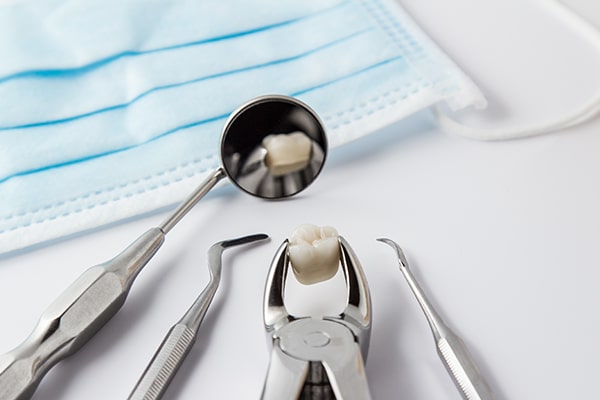
Extractions
Tooth extraction is a procedure where a tooth or teeth are removed using dental tools and equipment. Also known as oral surgery, it is a simple technical procedure that usually requires local l anaesthesia. Like any other minor surgeries, careful medical evaluation is necessary before a tooth extraction is performed. The procedure is accompanied with pain management for maximum patient comfort.
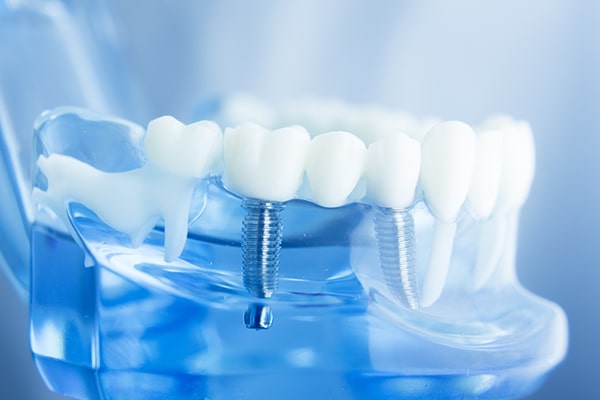
Dental implants
Dental implants are a lasting solution to tooth loss and can be used in both aesthetic and functional treatments. Whether you are missing a single tooth or multiple teeth, or would like a secure option to anchor dentures, dental implants could be the best solution.
The Straumann® Implant System’s tapered titanium implant anchors to the jawbone to replace the root of a missing tooth. Because the body readily accepts titanium, the gum and jawbone heal quickly and bond completely with the implant.
Dental Implants offer some really exciting benefits to patients:
- Restoring the mouth as closely as possible to its natural state
- Increasing comfort by eliminating loose fitting dentures
- An end to restricting food choices due to loose fitting dentures
- Avoid filing down healthy neighbouring teeth (as with a conventional bridge)
- Preserve facial structure by maintain healthy bone
- Providing a more natural smile and improving appearance and self-esteem
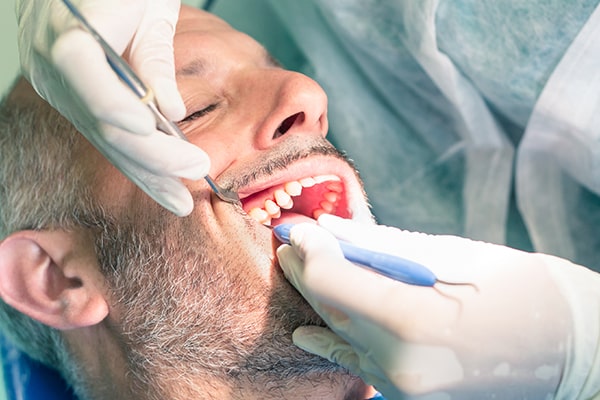
Root canal treatment
Root canal treatment (also called endodontics) is needed when the blood or nerve supply of the tooth (known as the pulp) is infected through decay or injury.
The aim of the treatment is to remove all infection from the root canal. The root is then cleaned and filled to prevent any further infection. Root canal treatment is a skilled and time-consuming procedure. Most courses of treatment will involve two or more visits to your dentist.
At the first appointment, the infected pulp is removed. Any abscesses, which may be present, can also be drained at this time. The root canal is then cleaned and shaped ready for the filling. A temporary filling is put in and the tooth is left to settle. The tooth is checked at a later visit and when all the infection has cleared, the tooth is then either permanently filled or crowned
Hygienist appointments
To promote the maintenance of good oral hygiene. There are three stages of hygiene therapy:

Education in oral hygiene
Initial cleaning to begin removal of hard deposits of tartar above and below the gum line. Your hygienist will begin to show you the skills and techniques used to achieve a healthy mouth.

Removal of all deposits under gum line and tooth margins
Periodontal aids may be prescribed and used, e.g. floss, tapes or interspace brushes. Your hygienist can also assess plaque control and improve your daily oral hygiene routine if necessary.
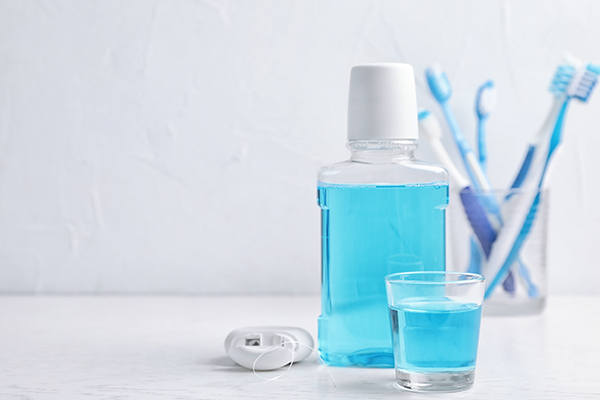
Maintaining oral health
At this stage you should now have achieved good oral health, and if this is maintained, you will retain healthy teeth and gums for life. Your hygienist will still remove any hard and soft plaque deposits and help refine the skills you have acquired.
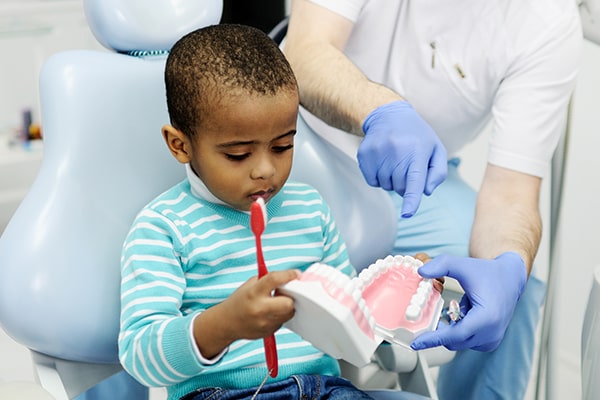
Oral health education
Oral health education has a valuable role within our dental practice to promote good oral health care. We work with dental patients of all ages to prevent oral disease and encourage good oral hygiene.
Smile makeover
When crowns, veneers and other specialist techniques are used to change the appearance of your smile.
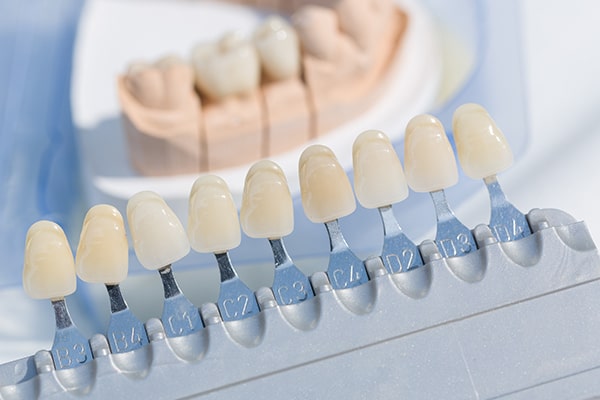
Veneers
A veneer is a thin layer of a ceramic material made to fit over the front surface of a tooth, this enables us to achieve an excellent cosmetic and aesthetic appearance.
What’s the difference between Veneers and Crowns?
Veneers are very thin layers of ceramic that are added to the surface of a person’s front teeth. A crown covers the entire visible surface of the tooth and adds strength and stability. A crown can be used to repair a tooth that has been worn. Teeth grinding, an improper bite, age, fillings and tooth decay are a few common reasons for tooth wear.
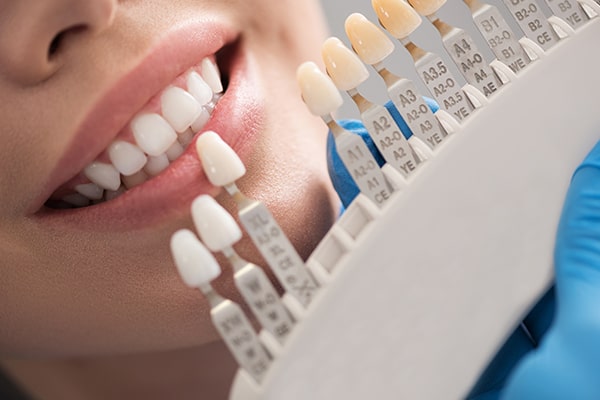
Crowns
A crown is an artificial restoration that fits over the remaining part of a prepared tooth, making it strong and giving it the shape of a natural tooth. A crown is sometimes known as a ‘cap’. There are numerous types of Crowns available. We offer CAD CAM computer designed non-metallic crowns which have excellent mechanical properties with fantastic aesthetics for that perfect smile.
Why would I need a crown?
Crowns are an ideal way to repair teeth that have been broken, or have been weakened by tooth decay or a very large filling. A crown could be used for a number of other reasons, for example:
- You may have a discoloured filling and would like to improve the appearance of the tooth.
- You may have had a root filling and need a crown to protect what is left of the tooth.
- It may help to hold a bridge or denture firmly in place.
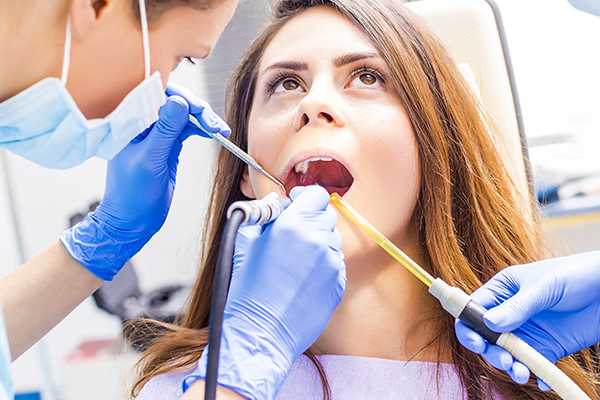
Composite Bonding
Bonding is the application of a tooth-coloured composite resin (plastic) to repair a decayed, chipped, fractured or discoloured tooth. Unlike veneers, which are manufactured in a laboratory, bonding can be done in a single visit. The procedure is called bonding because of the material bonds to the tooth.
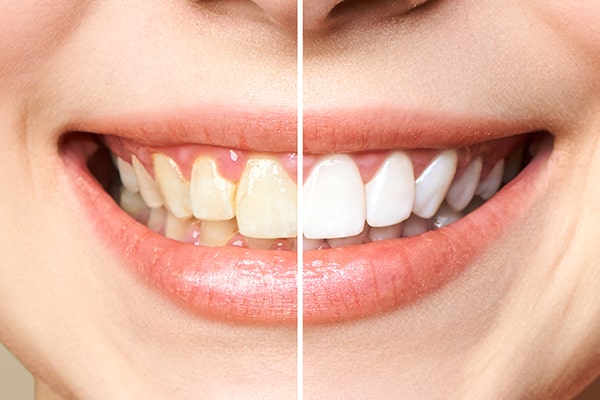
Tooth whitening
Tooth whitening can be a very effective way of lightening the natural colour of your teeth without removing any of the tooth surface. It cannot make a complete colour change, but it may lighten the existing shade.
The actual whitening process involves the dentist making special bleaching trays to enable you to maintain your whitening at home. The bleaching compound penetrates the porous outer layer of your teeth and break apart stain compounds which produces long lasting whitening.
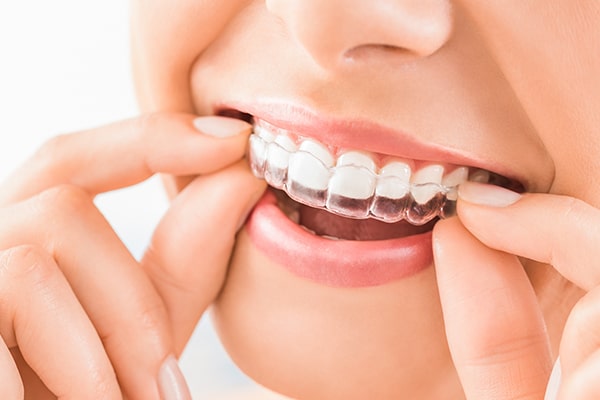
Invisalign
Invisalign® is the invisible way to straighten teeth using a series of custom-made, nearly undetectable aligners. Invisalign® consists of a series of removable clear braces or aligners that you change approximately every two weeks for a new set. Each aligner is individually made to fit you perfectly ensuring maximum comfort. It’s the perfect orthodontic choice for modern life.

32co Clear Aligners

Fillers
Dermal fillers are popular non-surgical treatments used to help rejuvenate the face and provide instant results. We use non-permanent hyaluronic acid fillers. Hyaluronic acid occurs naturally in our skin to provide shape and volume and dermal fillers can be used to soften deeper lines such as those from the nose to the lips or mouth to chin. They are also very popular to add volume to the lips and cheeks.
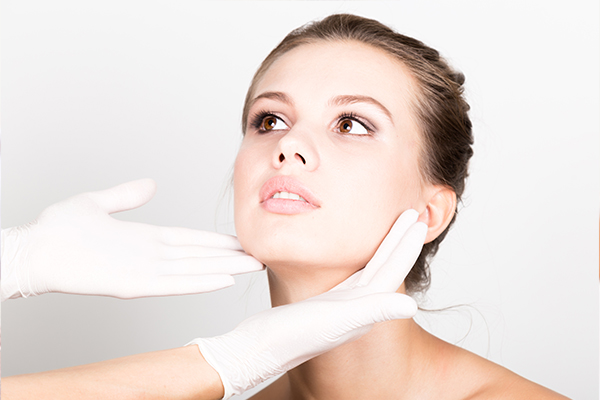
Consultation for the treatment of lines and wrinkles
We provide a full consultation for the treatment of lines and wrinkles. Individual suitability for treatment will be assessed at the consultation.

Dental homeopathy
by Dr Peter Darby only
For those looking for a more holistic approach, Dr Peter Darby offers homeopathic remedies and treatment.
The scope for homeopathy in dental practice is broad. Help is at hand for a range of different ailments people commonly experience – pain, discomfort, inflammation, bleeding. It can have a role in calming dental anxieties, speeding recovery and making the experience in the dentist’s chair generally more comfortable.
Homeopathy is incorporated to facilitate a more holistic way of approaching patient care. Homoeopathically ¬trained dentists are likely to treat and look at patients needs in a more holistic manner. In many dental cases homeopathy can be used alongside conventional allopathic medicines, as an adjunct to or instead of conventional treatment.
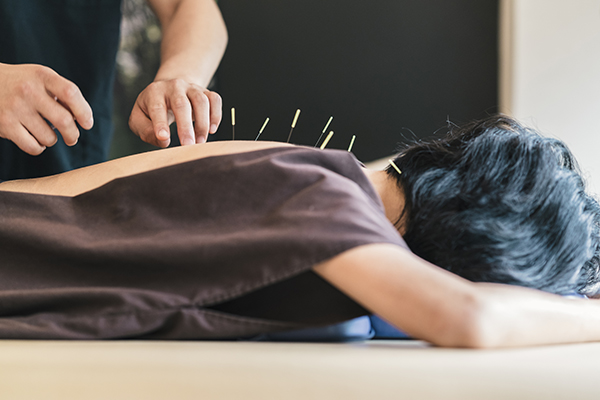
Dentistry & Acupuncture
by Dr Peter Darby only
Acupuncture is a medical treatment developed in China thousands of years ago that has received a huge amount of interest and is now becoming increasingly popular in western medicine and dentistry. It may be used to treat a wide range of medical and dental conditions.
Amongst these are a number of problems that may be diagnosed and treated by your dentist, ranging from gagging during treatment and pain controlling methods for facial, joint and jaw pain commonly known as TMJ pain. It is often used in patients for reducing anxiety before and during dental procedures.
Acupuncture is a safe treatment which can be used in combination with other treatments, such as physiotherapy, and conventional medicine. It is carried out alongside and integrated with conventional dentistry.
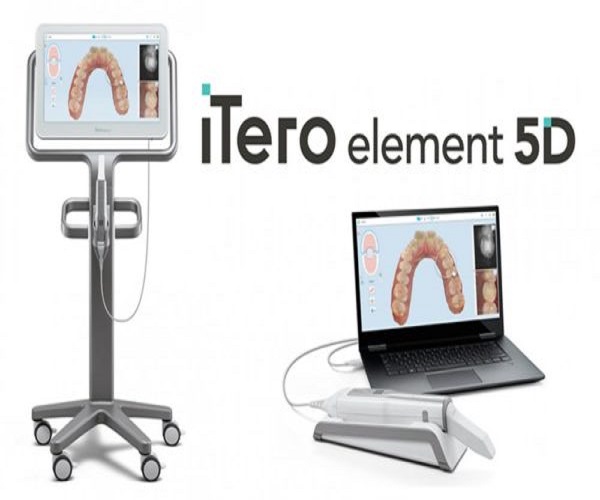
iTero Element 5Dimaging system
Introducing the iTero Element 5Dimaging system The first hybrid dental imaging system that simultaneously records 3D, intraoral colour and NIRI images and enables comparison over time using iTero Time Lapse technology. Visual technology that ushers in a new era of patient engagement. A free scan is available for invisalign consultations with Peter Darby, Shelly Nandhra, Alex Punter and Sabina Hakim.
